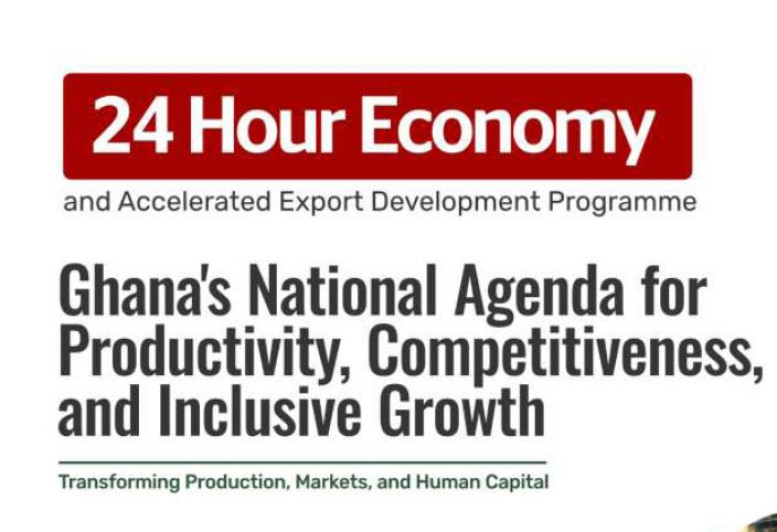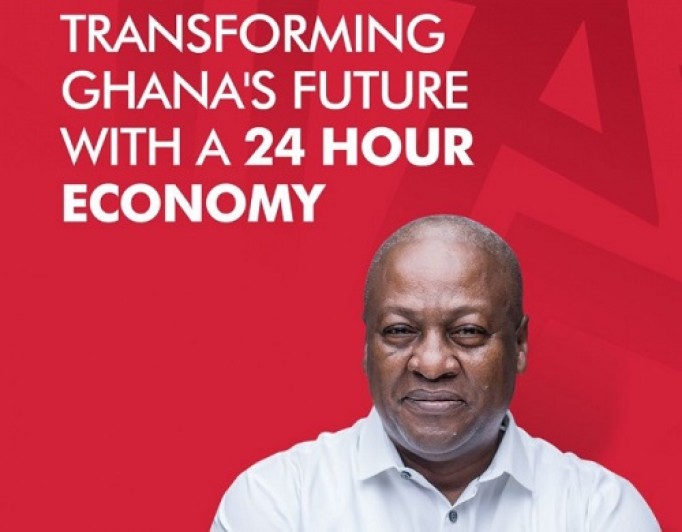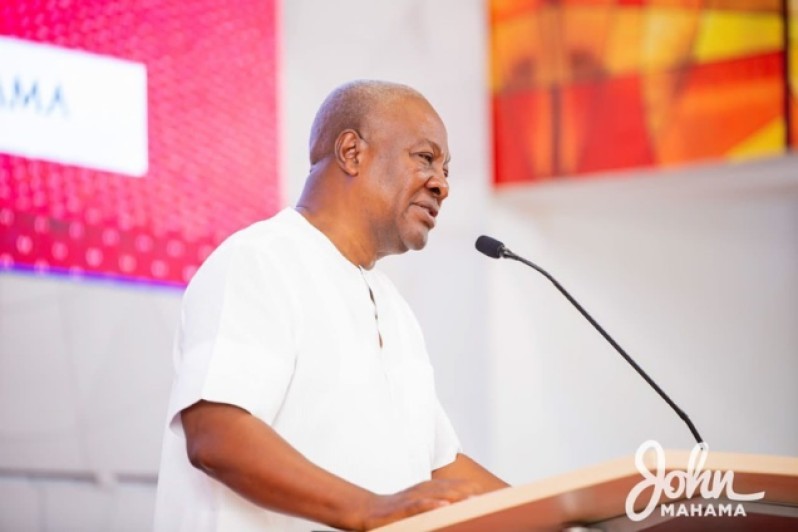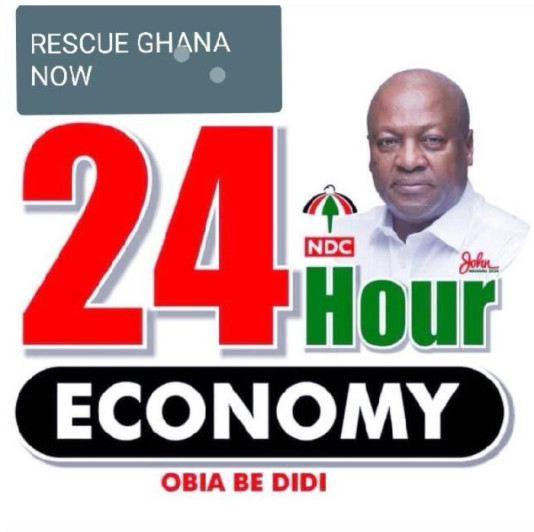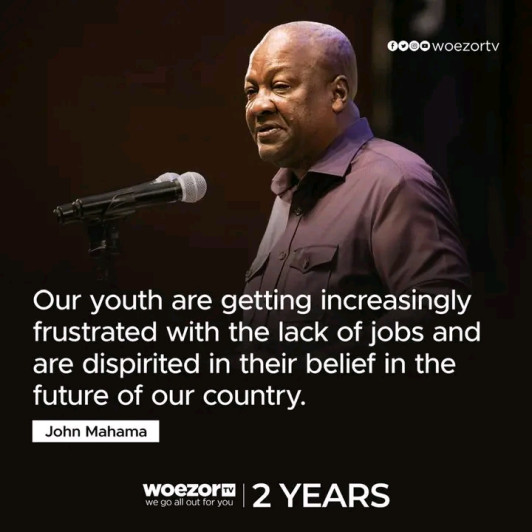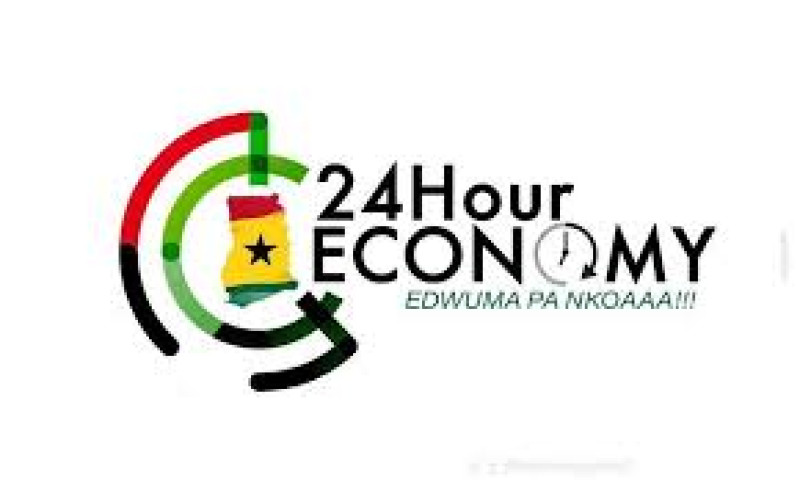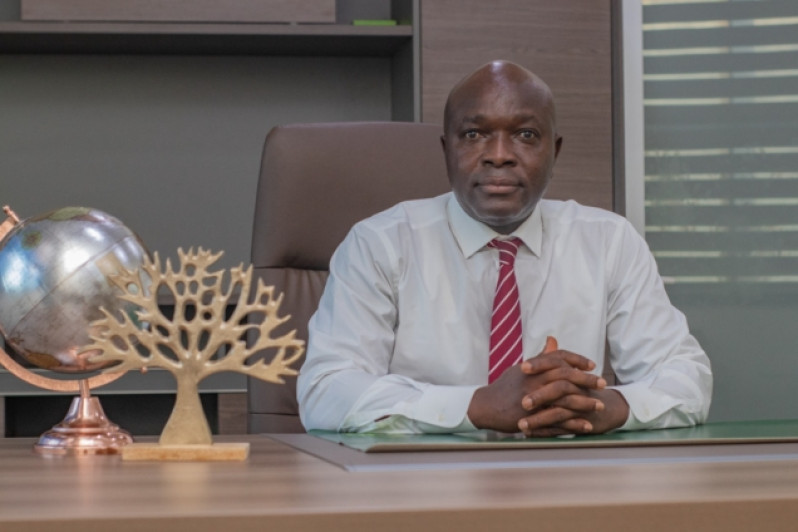
24-Hour economy to solve rising unemployment issues in Ghana:
Ghana has long been considered a success story and a model for African development.
It is a major producer of gold and cocoa and has one of the continent’s highest gross domestic product (GDP) per head.
A robust democracy since the early 1990s, it has a relatively well-run government that provides decent levels of public service, including free education.
However, the country is facing growing unemployment among its active youth, causing some security concerns.
According to the Ghana Statistical Service (GSS), 25 per cent of young people aged 15–35 were not in employment, education or training (NEET) across the three quarters of 2022.
This amounts to 2.5 million people or one out of every four young people.
The GSS also indicated that about 1.76 million people were unemployed in the third quarter of 2022, and two out of every three unemployed people were female.
Before this, data on Ghana’s youth unemployment fluctuated from six per cent to 13 per cent between 2016 and 2021.
This is a worrying development considering the demographic dividends Ghana could benefit from the youthful nature of its population.
The GSS clearly shows that the numerous government youth employment intervenations and initiatives, such as NABCO, YouStart and YEA, among many others, have failed to sustainably address the youth unemployment situation in the country.
In July last year, the government’s expenditure on NABCO was GH¢2.2 billion.
Additionally, expenditure on YouStart during the pilot phase was GH¢1.98 million out of the planned GH¢10 billion. Despite all these expenditures, unemployment keeps rising.
That is why the 24-hour economy, proposed by former President John Mahama, comes in handy to help address undoubtedly the biggest economic and security challenge that is bedeviling the country; it has the potential to reduce to growing unemployment situation in the country.
On the face of it, the concept of a 24-hour economy is so radical that many Ghanaians are having challenges coming to terms with what it means.
Effectively, it simply means an economy where economic activity – particularly production – is carried out all through the day and night rather than in cycles of work and downtime.
In urban centres, entertainment and recreation go on all through the night, as do activities at long-distance road transportation stations and airports, for instance.
But that is more informal and not backed by a deliberate government policy to formalise and incentivise the economic actors to take advantage of.
John Mahama’s concept of a 24-hour economy goes much further, in seeking to make – just as obtains in highly industrialised economies in North America, Europe and Asia – industrial production on factory floors, in particular, operates on shifts to facilitate manufacturing and packaging of goods, as well as the delivery of certain services, round the clock.
Indeed, this is the only way manufacturers with global markets but centralised factories can keep up with demand for the products they offer.
Some of the advantages, such as a huge increase in employment opportunities, are obvious. Indeed, job creation is the key objective of the architects of the concept’s implementation in Ghana.
A factory that operates two or three shifts, rather than closing down and leaving its machines idle outside of normal office hours, could more than double the number of the factory hands and managers they use.
Importantly, this would increase the potential for the aspects of a 24-hour economy.
Of course, there are practical limitations on the application of extended production hours and consequent output; primarily, the size of the market.
Companies already struggling to find buyers for their products, while still operating below installed production capacity, would see no need to increase production further through the use of shifts spread over 24 hours.
Opportunities
However, the opportunities are huge.
It is instructive that the primary argument against protectionism in favour of local industry, through high import tariffs or outright bans on imported alternatives, is that local manufacturers of many types of goods lack the production capacity to meet demand and so protectionism would result in product shortages.
Not only would 24-hour production through shifts increase local production of such products to meet demand, but the resultant improved economies of scale would improve their cost competitiveness against imported alternatives; in short, it would both increase the amount of locally produced goods available and would make them cheaper to produce as well.
This would improve Ghana’s non-traditional export capacity, as well as its import substitution capabilities, giving Ghanaian enterprises that adopt 24-hour operations larger market shares both at home and abroad.
In turn, bigger production volumes would mean bigger sales, bigger revenues and profits and consequently bigger corporate tax payments, as well as increased personal income taxes contributed by the much larger workforce needed to operate a 24-hour economy.
There may be some challenges to overcome in turning this idea into concrete reality.
A key issue would be the management and lifespan of equipment that would be used through almost the whole day and night rather than half of that time.
This would require significant improvement in Ghana’s suspect culture of equipment and facility maintenance.
But even this would come with a distinct advantage.
More intense use of machinery would inevitably shorten the lifespan, no matter the prudence of the maintenance applied.
But within those shorter equipment lifespans, cumulative production volumes would be the same as those for the current longer lifespans due to only part-time use of the equipment.
Financing cost
In a country where long-term financing for retooling and equipment replacement is hard to come by and financing costs are inordinately high, a 24-hour economy would enable manufacturers to use shorter-tenured financing to acquire or replace machinery since cash flows would be higher to meet financing costs quicker.
A 24-hour economy cannot be created in 24 hours days or months for that matter.
The implementation requires major logistical changes by producers relating to staffing, power, factory management, inventory control, transportation and the like.
Importantly, as with the 1D1F initiative itself, the government can only facilitate the transformation it seeks since it is not primarily a producer itself.
Here tax incentives can be offered that are revenue neutral; higher taxable income from increased economic activity and resultant profits can allow for lower tax rates applicable to enterprises that apply the 24-hour economy concept.
With the general election approaching, this laudable concept should be embraced rather than opposed.
The entire national economy and the populace stand as potential beneficiaries and so whoever assumes office in January 2025, it is well worth commencing its implementation through tax, logistical and administrative support from the government given to enterprises willing to implement it.
Support services would follow suit organically.
If the 24-hour economy concept is not bogged down by electioneering and political wrangling, it could be pivotal in improving Ghana’s economic fortunes and ultimately reducing the unemployment challenges.
By: Suleiman Mustapha (Graphic Online.com)
Disclaimer: "The views expressed on this site are those of the contributors or columnists, and do not necessarily reflect 24houreconomy.org’s position. 24houreconomy.org will not be responsible or liable for any inaccurate or incorrect statements in the contributions or columns here."
Share On Social Media 888
Other Stories
Mahama’s 24-hour economy is crucial and timely for Ghana’s junk-economy
The need of policy framework for a 24-Hour economy in Ghana
Charting a new course for Ghana's Development:24-hour economy vision-Prince Ibrahim
Meaning, Operations and Impact of 24-Hour Policy on Ghana’s Economy
Benefits of 24-Hour Economy in Health Sector- the Perspective of a Health Professional in the UK
The 24-Hour Economy And Its Importance To Ghana’s Economic Growth
24-Hour economy to solve rising unemployment issues in Ghana:
24-HOUR ECONOMY
Economy
Related News
News
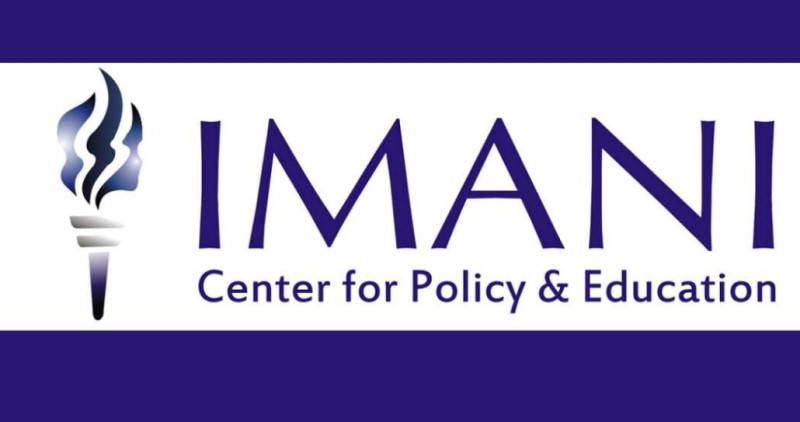
24-Hour economy policy a major improvement on past fragmented initiatives – IMANI Africa
Read More
GPHA launches full 24-hour operations at Tema and Takoradi Ports in response to presidential directive
Read More